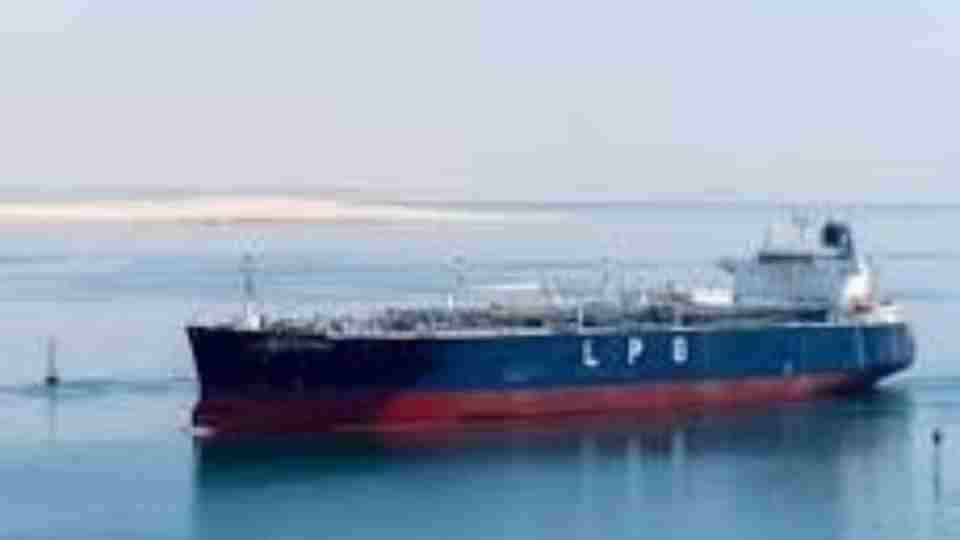Vessel carrying 27 crew members, including 24 Pakistanis, targeted while docked at Houthi-controlled port on September 17
A liquefied petroleum gas (LPG) tanker carrying 27 crew members, including 24 Pakistani nationals, came under Israeli drone attack while docked at Yemen’s Ras Issa port on September 17, according to Pakistan’s Interior Minister Mohsin Naqvi. The dramatic incident, which unfolded at a port controlled by Iran-backed Houthi rebels, has highlighted the dangerous conditions faced by civilian maritime workers caught in the crossfire of the ongoing Middle East conflict.

The Attack and Its Immediate Aftermath
The vessel was peacefully docked at the strategic Ras Issa port when Israeli forces launched the drone strike, Interior Minister Naqvi revealed in a statement posted on social media platform X on Saturday. The attack caused significant damage to the tanker, with one of the LPG tanks exploding following the strike. However, in a testament to their training and courage, the crew managed to contain and extinguish the resulting fire before it could spread further.
The crew composition included 24 Pakistani nationals, two Sri Lankan crew members, and one Nepali national. Notably, the vessel’s captain was also Pakistani, underscoring the significant Pakistani presence among the maritime workforce in these troubled waters.
Hostage Situation and Detention
Following the Israeli attack, the situation took another dangerous turn when Houthi naval forces intercepted the damaged vessel. According to Minister Naqvi’s account, Houthi boats approached and stopped the tanker, subsequently holding the entire crew hostage aboard their own ship. This detention added another layer of complexity and danger to an already precarious situation for the civilian crew members.
The hostage situation persisted for several days, during which the crew remained confined to their vessel under Houthi control. The psychological and physical stress on the crew during this period, coming immediately after surviving a drone attack and fighting a potentially catastrophic fire, cannot be understated.
Diplomatic Efforts and Resolution
Pakistan’s Foreign Office moved quickly to address the crisis once news of the incident reached Islamabad. The ministry immediately activated its diplomatic network, with relevant Pakistani embassies establishing direct contact with Yemeni authorities to ensure the crew’s well-being and secure their release.
Pakistani diplomatic missions maintained continuous communication not only with Yemeni officials but also with the families of the affected crew members back home. This dual approach helped manage both the immediate crisis and the anxiety of worried families who were kept regularly updated about the evolving situation.
The Foreign Office’s statement emphasized the comprehensive nature of their response: “Upon receiving the news about the incident, the relevant Pakistan embassies had established contacts with the authorities in Yemen to ensure the well-being of the crew.”
Safe Departure and Current Status
After days of intensive diplomatic negotiations and efforts to repair the vessel, the LPG tanker was finally cleared to depart. On Saturday, the Foreign Office confirmed the successful resolution of the crisis, announcing that the tanker had left port and was making its way out of Yemeni territorial waters.
“Today, the LPG tanker has departed [from the] port and is making [its] way out of Yemeni waters. The entire crew, including Pakistani nationals, on board is safe and sound,” the Foreign Office stated in its official release.
The successful evacuation represents a significant diplomatic achievement for Pakistan, demonstrating the effectiveness of quiet diplomacy in securing the release of its nationals from a complex and dangerous situation involving multiple parties to the Yemen conflict.

Regional Context and Implications
This incident occurs against the backdrop of intensifying regional tensions stemming from the ongoing Gaza conflict. Israel has been conducting repeated military operations against Houthi targets throughout Yemen, responding to the Iran-backed group’s sustained campaign of missile and drone attacks against Israeli territory and international shipping in the Red Sea.
The Houthis have justified their attacks as acts of solidarity with Palestinians, positioning themselves as part of the broader “axis of resistance” against Israel. However, these actions have significantly increased risks for civilian maritime traffic in one of the world’s most important shipping lanes.
The attack on the Pakistani-crewed LPG tanker illustrates how civilian workers and commercial vessels have become inadvertent casualties in this broader regional conflict. The targeting of a commercial vessel with civilian crew members raises serious questions about the protection of non-combatants and commercial shipping in active conflict zones.
Maritime Security Concerns
The incident highlights the precarious security situation facing commercial shipping in the Red Sea and surrounding waters. LPG tankers, carrying highly flammable cargo, represent particularly vulnerable targets due to the catastrophic potential of any successful attack.
The fact that the crew managed to extinguish the fire following the tank explosion likely prevented a much larger disaster that could have resulted in significant casualties and environmental damage. This near-miss serves as a stark reminder of the risks faced by maritime workers operating in conflict zones.
Looking Forward
The successful resolution of this crisis, while welcome, underscores the urgent need for enhanced protection of civilian shipping and maritime workers in the region. The incident also demonstrates the importance of effective diplomatic channels and crisis management capabilities when nationals find themselves caught in international conflicts.
As regional tensions continue to escalate, similar incidents involving civilian vessels and crews may unfortunately become more common, requiring robust diplomatic and security responses from affected nations. Pakistan’s handling of this crisis may serve as a model for other countries facing similar challenges in protecting their nationals working in high-risk maritime environments.
The safe return of the Pakistani crew members represents a small but significant victory for diplomatic engagement in an increasingly volatile region where civilian lives too often become collateral damage in broader geopolitical conflicts.RetryClaude can make mistakes. Please double-check responses.






